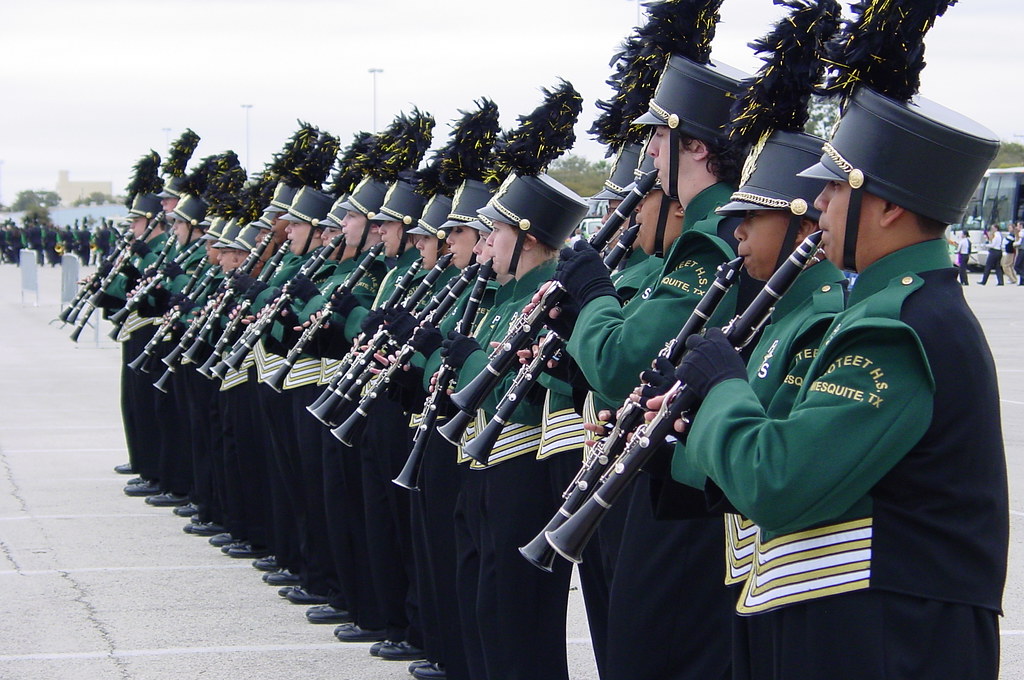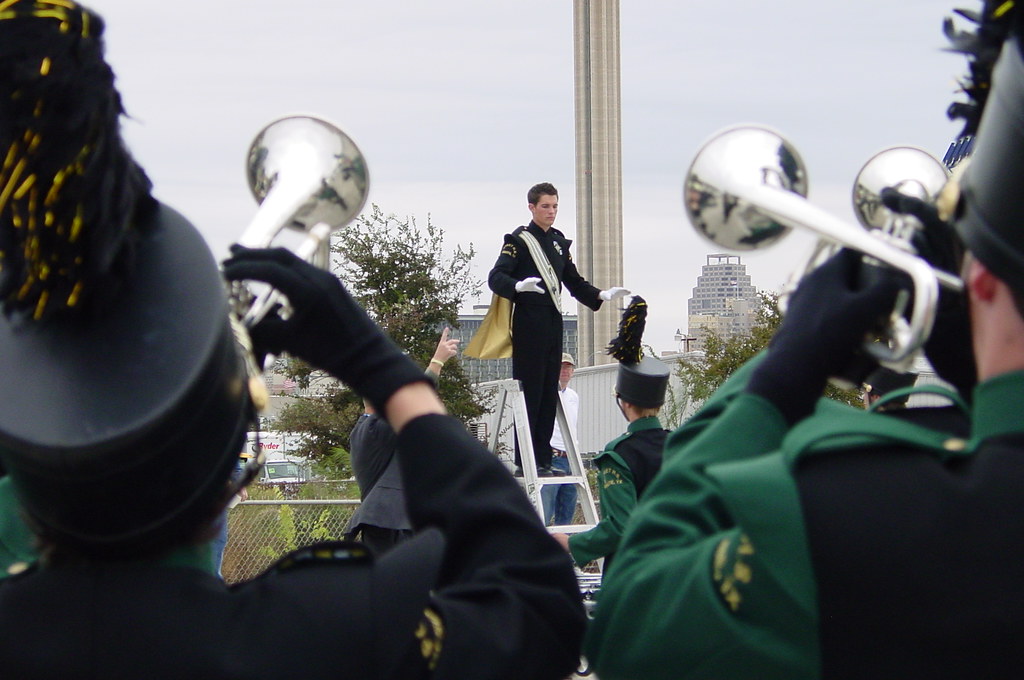Let’s talk marching band. As many of you know, I had a pretty successful tenure at Mesquite: Poteet High School. As Director of Bands, in particular director of the marching band, I know the difficulties in maintaining a life balance for both you, your family, your assistants and their families, and your students.
High school band directors, in particular head directors, are leaving the profession at an alarming rate these days due to burnout. To be truly successful, the demands on their time can get out of control. Head directors have become more of a CEO than anything else, and trying to juggle all of the responsibilities involved can be super stressful. Add that to the time spent at the band hall and not at home with loved ones, no wonder we have burnout!
While I did not have to deal with some things being dealt with today during my teaching days, the time commitment was no less than it is now. I still wanted my band to be successful and to be competitive, and we were. There are no special “tricks” to do this. You just have to have a plan, a philosophy, and a belief that what you are asking of yourself, your staff and your students is worthwhile and is reasonable to all stakeholders, parents included.
We can all be lured into thinking that if we just practiced a little more, asked just a little more, spent more time in the band hall that we can accomplish our goals. When I opened Poteet High School, I thought the same things. If I just spent a little more time up at the band hall, we could be great. When my son was 4 years old, he asked me if I still lived at home. That was an eye-opener! From that point on, I made it a point not to be at school so much. I would bring work home and after doing my number one job of being a dad and husband, I would work a bit after he went to bed or get up early to do some work before he got up. I encouraged my assistants to do the same.
So, with this in mind, I began to develop rehearsal techniques and strategies that maximized all of our time, while not demanding that everyone be at the band hall all of the time. And again, we were very successful, so I know they work and will continue to work.
None of these are original, as we all steal from each other! Also, there are no magic tricks: Whatever music and visual package you have selected for your show, make sure it is appropriate and educational. Are the students going learn from it, and are you going to learn and grow as a teacher from it? You are going to spend a great deal of time with this show, so make it worthwhile.
Summer band schedules — schedule reasonable rehearsal schedules that don’t demand students be there from dawn to dusk or even later. In order to make this work, you need to run efficient rehearsals. Do not waste a second. Keep them fast paced…don’t get bogged down. You don’t have to have every segment of the rehearsal on a timer, just be smart in how you do this. Even when you begin before or after school rehearsals, don’t take advantage, end the rehearsal when it is scheduled to end.
Start your rehearsal on time. Make it clear that it is not ok to be late! Sounds simple, but I have been to so many rehearsals where students are wandering in during or after warm-up (the most important part of the rehearsal). Don’t wait for them to arrive to get started, there should be a consequence for arriving after the start of rehearsal.
Rehearsal planning — I ran my marching rehearsals like my concert band rehearsals. I always followed this simple rule: no matter how long your rehearsal is going to be, the ratio of the rehearsal should be 1/3 warm-up/fundamental work to 2/3 everything else. It’s simple. Also, during the warm-up period, never just go through the motions. Always demand the students’ full attention. If you don’t get to everything in your warm-up, that’s ok. To me this is the most important part of the rehearsal. It sets the tone for the rest of the rehearsal. Make sure your students are fully engaged during this time. And…have a plan for the rest of the rehearsal. Don’t just start at the beginning of a movement or piece, be very specific about where you want the focus of the rehearsal to be in each segment. Be prepared. Students know when you are not prepared!
When working through a problem spot, I would always sequence it in this way: Play through the segment first, get it to sound the way you want it to sound. Work on the visual next, either choreography or the marching execution of it, get it to look the way you want it to look. Then put it together. If it does not sound as good as it did when that was your sole focus — stop. Do the same for the visual. Address the issue and begin the sequence again. You can’t fix everything at once. Everything has a saturation point, so try not to get stuck on one issue. Move on.
Rely on your student leaders. This is very important. I always made it clear to our leaders — Drum Majors, Section Leaders, Drill Leaders, etc. — that our band was only going to be as successful as they wanted it to be. If things weren’t going well, I held them accountable. They need to lead by example — don’t demand more of others than they aren’t willing to do themselves.

And, finally, the approach you take and your philosophies when directing a band are paramount to your success. Here’s my two cents about winning:
Throughout my tenure at Poteet, we had a strong tradition of success. We won a lot. However, we never talked about winning. Instead, the focus was on the process. Of course we wanted to win, to be successful and competitive, but a stated goal is just that, a stated goal. Our emphasis was on the steps it took to be successful. Self-improvement and the success of all fellow students was the focus. Be better at something today than you were yesterday. Practice like you are performing, because you always perform like you practice! We never talked about beating another band in any competition — we were our own competition — and if we could continue to surpass our own high standards, the results would take care of themselves. And for the most part, they did. I am really proud of that.



